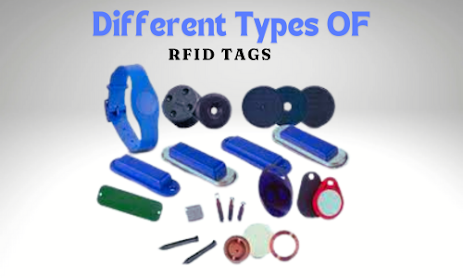The Benefits of Using Washable RFID Tags on Clothes
As technology evolves, the retail and textile industries are constantly seeking innovative ways to improve efficiency and customer experience. One such advancement is using washable RFID (Radio Frequency Identification) tags on clothing. These tags offer numerous benefits, from streamlined inventory management to enhanced customer satisfaction. We are exploring the advantages of washable RFID tags, especially in the realm of clothing and textile applications.
What is
RFID Technology?
RFID technology works by using electromagnetic fields to
automatically identify and track tags attached to objects. These tags contain
electronically stored information that can be read by an RFID reader from a
distance, without needing a direct line-of-sight scan. RFID technology is
widely used in different industries for tasks like managing inventory, tracking
assets, and controlling access.
What are
the Uses and Benefits of Washable RFID Tags on Clothes?
Washable
RFID tags are designed to withstand the rigors of laundering and are ideal
for tracking garments throughout their lifecycle. They offer several
advantages:
- Washable RFID Tags for Tracking
Clothes:
These tags are embedded in garments to provide real-time tracking and
monitoring. This is particularly useful in retail environments, where
inventory management is crucial. Retailers can easily track stock levels,
monitor the movement of items, and prevent theft. Additionally, RFID tags
provide valuable data on consumer behavior, helping businesses optimize
their inventory and marketing strategies.
- Laundry Tags for Linen Tracking: In the hospitality and
healthcare industries, tracking linens and uniforms is a significant
challenge. Washable RFID tags are an effective solution to this problem.
They allow for efficient inventory management, ensuring that linens are
tracked through each stage of the laundry process. This not only reduces
loss and theft but also helps in maintaining hygiene standards by ensuring
that linens are properly cleaned and rotated.
- Fabric Laundry Tags for Garment
Tracking:
These tags are made of soft, durable materials that can withstand multiple
wash cycles without degrading. They are ideal for use in various settings,
including hotels, hospitals, and sports clubs, where garments are
frequently washed and need to be tracked accurately. Fabric laundry tags
help organizations manage their garment inventories more efficiently,
reducing the costs associated with lost or misplaced items.
- RFID Silicone Laundry Tags: Silicone laundry tags
are known for their durability and flexibility. They can withstand high
temperatures and harsh chemical environments, making them suitable for
industrial laundry applications. These tags are commonly used to track
uniforms, workwear, and other textiles that require frequent laundering.
By using RFID silicone laundry tags, organizations can streamline their
laundry processes, reduce labor costs, and ensure accurate inventory
counts.
- RFID Non-Woven Fabric Laundry
Tags:
Non-woven fabric laundry tags offer a lightweight and versatile solution
for tracking garments and linens. These tags are particularly useful in
settings where the tags need to be discreet and unobtrusive, such as in
high-end fashion or specialty uniforms. RFID non-woven fabric laundry tags
help businesses maintain a seamless tracking system without compromising
the comfort or appearance of the garments.
- PPS Button Laundry Tag: PPS (Polyphenylene Sulphide)
button laundry tags are small, durable, and resistant to high temperatures
and chemicals. They are often used in applications where the tag needs to
be securely attached to a garment, such as in military or industrial
uniforms. PPS button laundry tags provide a reliable and long-lasting
solution for garment
tracking, ensuring that each item can be accurately identified and
accounted for throughout its lifecycle.
Conclusion
The adoption of washable RFID tags in the clothing and
textile industries offers numerous benefits, from improved inventory management
to enhanced customer satisfaction. These tags provide a durable and reliable
solution for tracking garments, linens, and other textiles, helping businesses
streamline their operations and reduce costs. Whether used in retail,
hospitality, healthcare, or industrial settings, washable RFID tags represent a
significant advancement in the way we manage and track clothing and textile
products.
As technology continues to evolve, the use of RFID tags is
likely to become even more widespread, offering new opportunities for innovation
and efficiency in various industries. Businesses that invest in this technology
can expect to see improvements in inventory accuracy, reduced losses, and a
better understanding of consumer behavior, ultimately leading to a more
successful and profitable operation.
.png)



Comments
Post a Comment